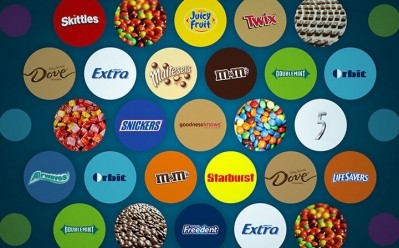Wrigley’s menthol gum appeal against Cadbury dismissed

Wrigley's patent now stands invalid, despite one dissenting judgement, however Cadbury's is not able to extend its patent either.
Both gum manufacturers had been looking at ways to give gum a cooling sensation beyond simply adding menthol, which can give overly powerful peppermint flavours and bitterness.
During the 1970s and 1980s Wilkinson-Sword developed two physiological cooling agents without the drawbacks of menthol: WS-3 and WS-23.
Cadbury owns a US patent for a menthol/WS-3 combo used in chewing gum, which was filed in 1989.
Wrigley meanwhile holds a US patent for a menthol/WS-23 combo in chewing gum, which was filed in 2000.
After Wrigley filed its patent, Cadbury reformulated some of its gum to contain WS-23. Wrigley then filed a suit against Cadbury in a district court in Illinois, accusing Cadbury of infringing its patent.
Cadbury counterclaimed, arguing that Wrigley had infringed its original patent filed in 1989.
Original district court judgement
The district court first found that Wrigley had not infringed Cadbury’s patent because Wrigley’s W-23 was not an N-substituted p-methane carboxamide as expressed in Cadbury’s patent.
However, it concluded that Wrigley’s patent was invalid on the grounds of anticipation and obviousness based on separate patents and studies unrelated to Cadbury's 1989 patent.
In patent law, anticipation occurs when an invention with substantially the same structure and function has already been patented or has a patent pending.
An invention is “obvious” and cannot be patented if it not sufficiently inventive because it is an extension or variations of previous inventions.
Wrigley’s patent was deemed to be anticipated due to an earlier patent from Procter & Gamble that detailed oral composition, including chewing gum, containing xylitol and bis-glycinate. W-23 and menthol was among the cooling agents mentioned in this patent.
Wrigley’s patent was also considered obvious based upon an earlier patent from Warner-Lambert and a study written by Dr M.A Parrish.
Appeal court upholds earlier ruling
Wrigley appealed the federal court’s decision arguing that its W-23/menthol combo could not have been anticipated from Procter & Gamble’s earlier patent as a person of ordinary skill could not have derived the combination from it, particularly as the earlier patent did not mention menthol and W-23 being used together.
It also contended that the W-23/menthol combo was not obvious based upon Warner-Lambert’s patent and Parrish’s study.
However, the US Court of Appeals for the Federal Circuit, led by Judge Robert M Dow Jr., upheld the federal’s court’s original decision and dismissed Wrigley’s appeal.
It also upheld the federal court’s earlier ruling, which said that Cadbury’s 1989 patent could not be extended to include WS-23.
Circuit Judge Newman agreed that Cadbury’s patent could not be extended, but gave a dissenting judgement, arguing that Wrigley’s W-23/menthol combo could not have been anticipated and lacked obviousness.
Both Wrigley and Cadbury were ordered to cover their own costs for the appeal case.
The case was the latest clash between the two firms after a patent dispute over sugarless gum in Australia in 2006. (See HERE)







